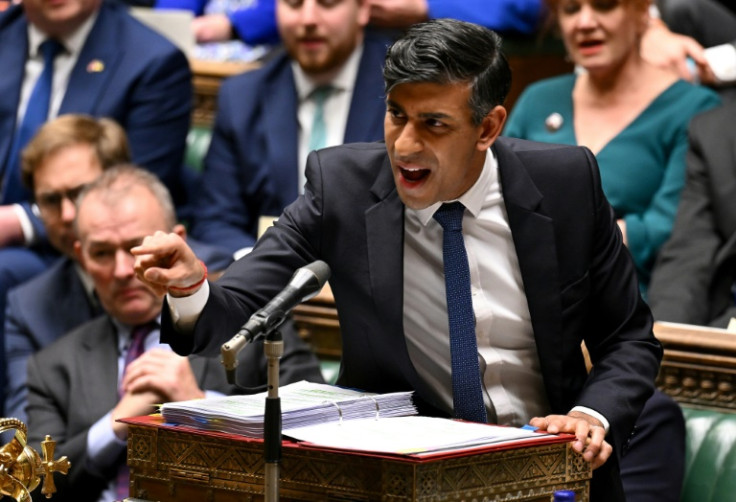
The UK Government has given Rwanda a further £100m this year as part of its deal to relocate asylum seekers there.
The substantial payment was made in April of this year, the Home Office's top civil servant said in a letter to MPs, after £140m had already been sent to the African nation.
Sir Matthew Rycroft said another payment of £50m was expected next year.
The revelation will likely increase pressure on Rishi Sunak, as he faces rebellion from all sides of his party over his reconstructed asylum plan.
Until now it was known that the government had already spent at least £140m on the policy.
Sir Matthew had previously refused to disclose updated figures, saying ministers had decided to set out the costs annually.
He stressed that the extra payments were not linked to the new treaty signed this week between the UK and Rwanda, as part of the government's attempt to amend the policy, which was ruled unlawful by the Supreme Court last month.
Legal migration minister Tom Pursglove said the money was being spent to ensure the Rwanda policy was "robust".
He added that the scheme was "key" to reducing the amount the government spends on housing migrants in UK hotels – currently £8m a day.
However, Labour branded the revelation of the extra costs "incredible", with shadow home secretary Yvette Cooper adding: "How many more blank cheques will Rishi Sunak write before the Tories come clean about this scheme being a total farce?"
"It's basically £100m for every home secretary trip to Rwanda," she said.
The scheme to send some asylum seekers to Rwanda for processing and potentially resettlement, to deter people from crossing the English Channel in small boats, was first announced by then-Prime Minister Boris Johnson in April 2022.
But it has been repeatedly delayed by legal challenges and no asylum seekers have been sent from the UK so far.
Last month, their strategy to cut illegal migration to the UK was dealt a further blow, after it was blocked by the Supreme Court.
It ruled that deporting asylum seekers to the East African country would violate international human rights laws enshrined in domestic legislation.
Immediately after the Supreme Court decision, the government insisted it had been working on contingency measures and promised a revised treaty with Rwanda within days, along with emergency legislation in parliament.
After flying out to Rwanda, Home Secretary James Cleverly met his counterpart, Vincent Biruta, to sign an updated treaty and discuss key next steps in the so-called migration and economic development partnership.
But the new deal, which sees Britain attempt to comply with the European Court of Human Rights, rather than opting out of it, has faced a barrage of criticism.
Immigration minister Robert Jenrick resigned earlier this week, claiming the new deal "did not go far enough".
In his resignation letter to the prime minister, Jenrick wrote that the proposed laws were "a triumph of hope over experience".
Sunak's former interior minister Suella Braverman also said the law was destined to fail, and she urged Sunak to change course on immigration – a major political battleground in next year's expected general election.
At a hastily convened news conference in Downing Street, Sunak sought to appease right-wing Tories who want him to withdraw Britain from the European Court of Human Rights, to stop courts blocking removals.
He also denied that a vote on the Rwanda legislation expected in parliament next week would amount to a confidence vote on his leadership.
"This bill blocks every single reason that has ever been used to prevent flights to Rwanda from taking off," Sunak told reporters.
"The only extremely narrow exception will be if you can prove with credible and compelling evidence that you specifically have a real and imminent risk of serious and irreversible harm."
The Prime Minister vowed to cut illegal migration when he took office last year, stating he would "stop the boats" – one of his five policy pledges.
But since then, migration figures have read for worrying reading.
The Office for National Statistics (ONS) said the number of people who arrived in Britain last year was 745,000 more than the number who left.
An analysis carried out by the Home Office revealed that it would cost the government an estimated £169,000 to send illegal migrants to countries such as Rwanda.
The revelation was part of an Impact Assessment of the Rwanda plan after it was first introduced to Parliament in March.







